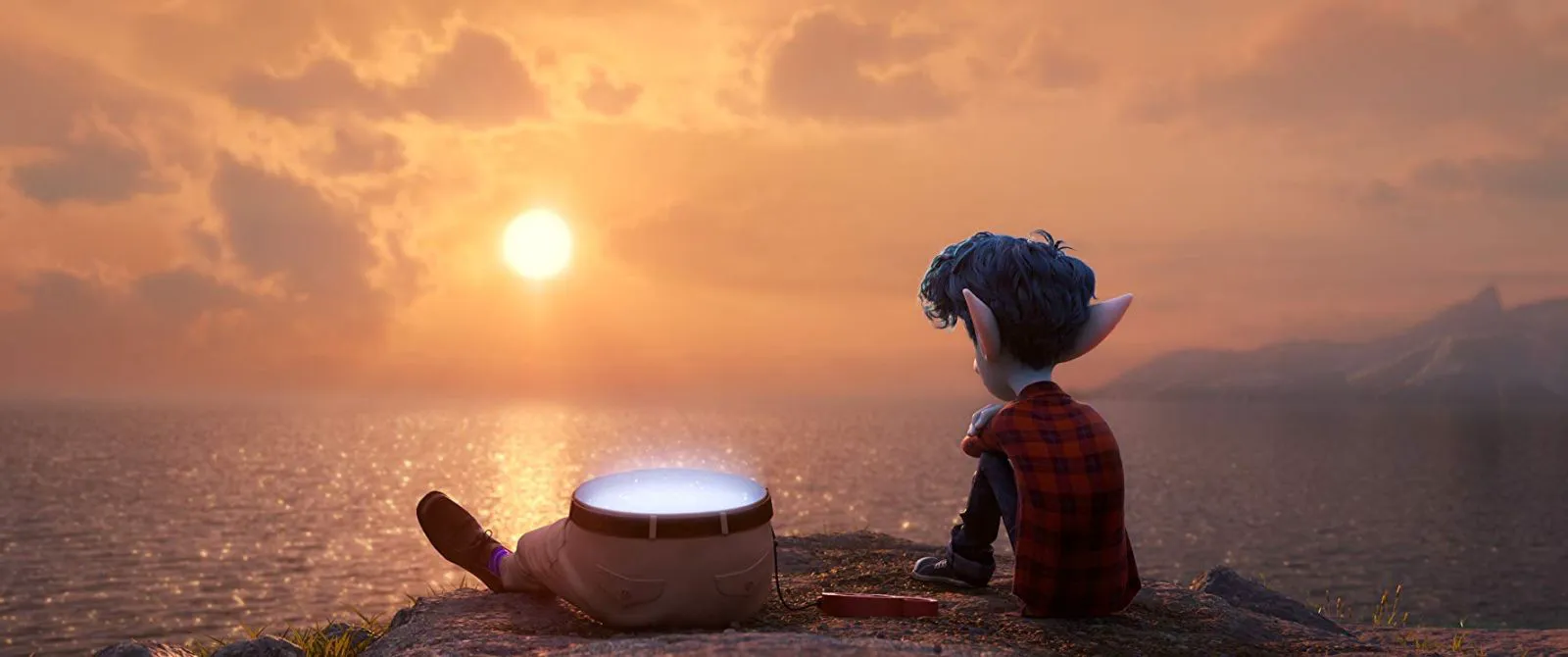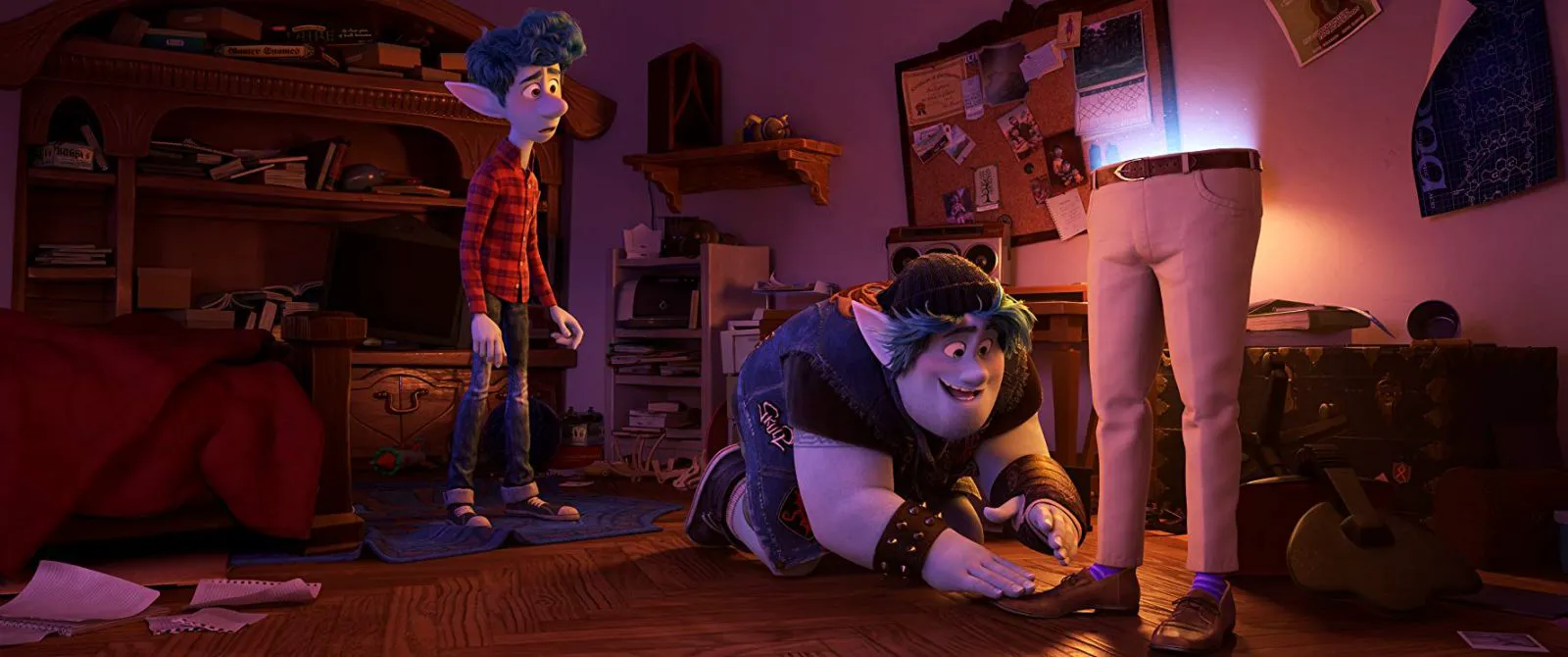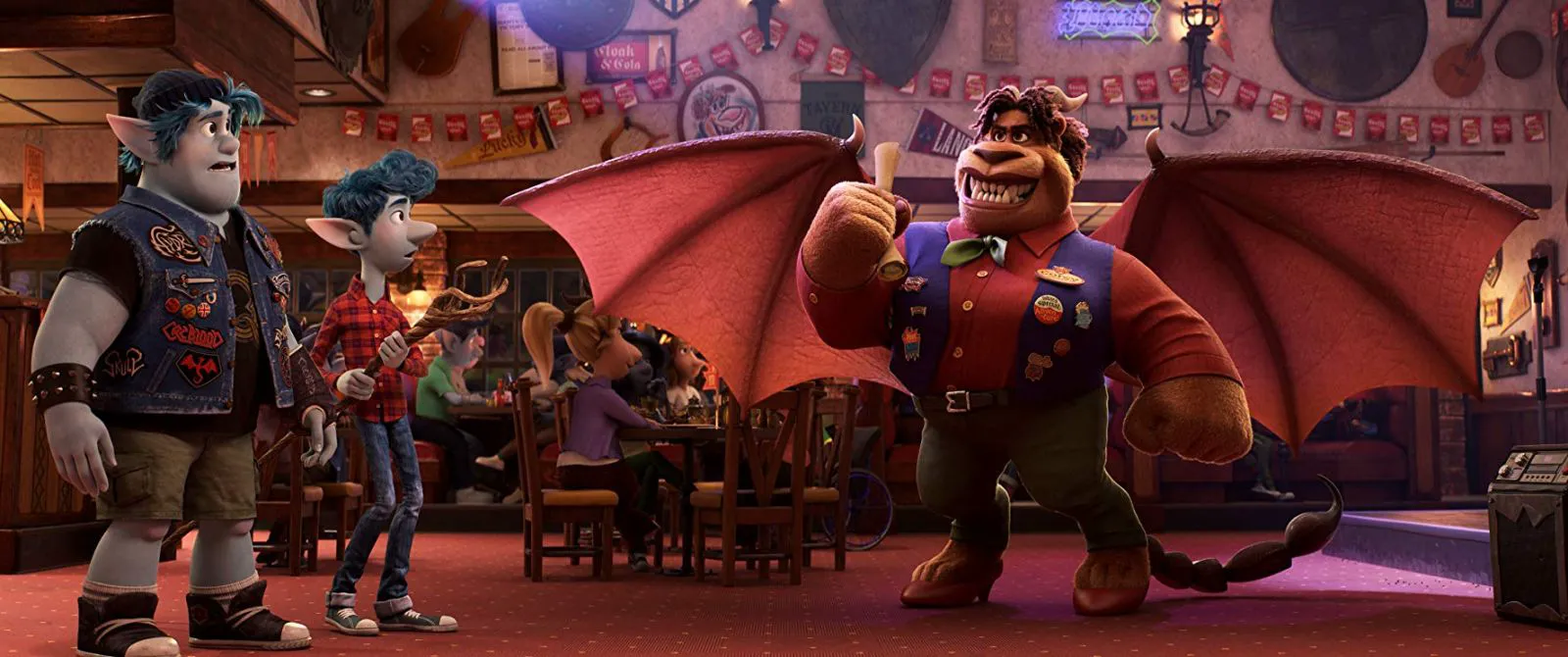Onward: A Step Forward for Pixar?
In “Onward,” we meet Ian, a shy, introverted elf on the cusp of his 16th birthday. He dreams of breaking out of his shell, striking up conversations with his classmates, and maybe even hosting a party. However, his plans are constantly thwarted by his older brother, Barley, a jobless, fantasy role-playing game enthusiast. To ease Ian’s disappointment, their mother presents them with a mysterious gift from their late father. Inside is a magical staff – a relic from their father’s late-life fascination with the magic that has long vanished from their world.
Using the staff and an ancient spell, the brothers attempt to resurrect their father for just one day. But the spell goes awry, bringing back only his lower half. Now, they must embark on a quest to find the mythical Phoenix Gem and complete the spell, with only 24 hours to succeed.

Pixar had previously hinted that “Toy Story 4” would mark the end of their seemingly endless stream of sequels, promising a shift towards original content. “Onward” was chosen to usher in this new era, helmed not by studio veterans like Andrew Stanton or Pete Docter, but by Dan Scanlon, the director of the less memorable “Monsters University.”

A Familiar Journey with a Magical Twist
“Onward” represents a significant leap for Scanlon, but perhaps a smaller step for Pixar itself. The film boasts a captivating concept – a world where mythical creatures live mundane, post-industrial lives, having forgotten magic. However, it ultimately unfolds as a straightforward family road movie with a peculiar, almost morbid, theme reminiscent of “Swiss Army Man,” but geared towards a younger audience.
The central theme of dealing with the absence of a father is undoubtedly poignant and timeless. Yet, unlike the deeply psychological explorations in “Inside Out” and “Coco,” “Onward” tackles this theme with a somewhat superficial approach, relying on well-worn plot devices and predictable conflicts.

Heartfelt Moments Amidst Familiar Tropes
Despite its shortcomings, “Onward” is far from a bad film. Pixar has set such a high standard that even a “good” film can feel like a letdown. “Onward,” with its simplicity and occasional sentimentality, manages to be funny, engaging in its action sequences, and, true to Pixar’s form, deeply touching. The film’s ending delivers an unexpected emotional twist that, while seemingly out of nowhere, resonates effectively.
A Textbook Example of Storytelling
The screenplay of “Onward” is transparent and straightforward, making it an excellent case study for aspiring writers. The film’s dramaturgy is clear, with well-defined accents and beats. It pays close attention to fleeting details and casually spoken lines, which often reappear later in the story in surprising ways. “Onward” is a well-crafted piece of work, and in an era of studios focused solely on profit, that alone is a gift.